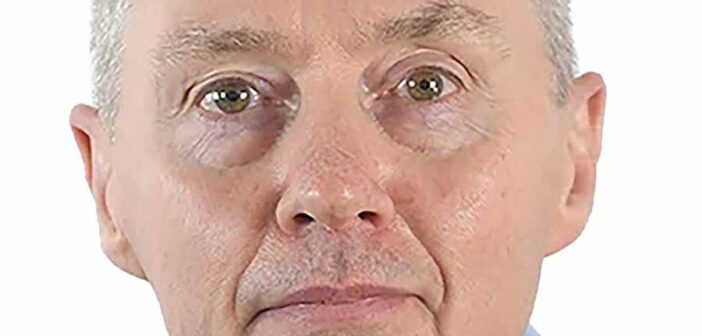The 81st International Air Transport Association (IATA) Annual General Meeting (AGM) and World Air Transport Summit (WATS), held in New Delhi, India, from June 1-3, 2025, hosted by IndiGo at the Bharat Mandapam Convention Centre, marked the return of the global aviation summit to India after 42 years. The summit brought together over 1,600 leaders from airlines, aviation stakeholders, governments, and media to discuss critical industry issues
- High-Level Attendance: The event drew 1,600–1,700 participants, including airline CEOs, government officials (e.g., PM Modi, Civil Aviation Minister Kinjarapu Ram Mohan Naidu), and media. It served as a platform for collaboration on safety, sustainability, and global demand.
- Industry Outlook: IATA expressed cautious optimism for 2025, projecting clearer skies for airlines despite challenges. Building on 2024’s improved profitability ($30.5 billion net profit, 3.1% margin), the summit focused on strategies to sustain growth amid geopolitical uncertainties and supply constraints.
- Pushback in Europe: Describing the Dublin airport passneger cap as “total madness” IATA’s Glasnevin born CEO Willie Walsh said the pushback against aviation growth in Europe was not replicated in countries such as India and China. IndiGo’s CEO Pieter Elbers (also IATA’s 2025 board chair) said it is acknowledged in India athat aviation is a force for good but his native Netherlands and Ireland have become complacent and ceased to realise that.
- IndiGo’s Role: As host, IndiGo, under CEO Pieter Elbers (also IATA’s 2025 board chair), showcased India’s aviation ambitions. The airline’s growth and historic orders underscored its influence.
- Travel Demand: With a record 5 billion air travelers expected globally in 2024, India’s aviation market was highlighted for its robust demand, with IndiGo flying 1 million passengers every three days.
- Gender Balance Awards: The summit celebrated leaders driving gender balance in aviation, sponsored by Qatar Airways. This reflected IATA’s commitment to DEI, with discussions on fostering inclusive workforces to meet industry demands.
- Regional Solutions: Radhika Gupta, CEO of Edelweiss Asset Management, advocated for tailored aviation solutions across India’s diverse regions, emphasizing empathy and efficiency at airports, especially for first-time fliers and smaller city hubs.
- Global Recognition: India was celebrated as the world’s third-largest domestic aviation market, with 162 airports and a rapidly expanding infrastructure. The summit highlighted India’s trajectory to become a leading global aviation hub within the decade, driven by record aircraft orders (e.g., IndiGo’s 500 Airbus narrowbodies and 30 A350-900s, Air India’s 400+ aircraft orders) and world-class infrastructure development.
- Economic Impact: Aviation supports 7.7 million jobs and contributes over $53 billion to India’s GDP, positioning it as a key economic driver for tourism, trade, and regional connectivity. IndiGo’s expansion to 91 domestic cities (up from 21 in 2015) and 40 international routes underscores this growth.
- Prime Minister’s Address: On June 2, PM Narendra Modi emphasized India’s aviation transformation, highlighting the UDAN scheme for regional connectivity and ambitions for India to become a global aviation and manufacturing hub. He noted emerging opportunities in commercial space flights and interplanetary travel.post:0,1,4
- India’s Sustainability Leadership: Speakers, including Amitabh Kant (G20 Sherpa), emphasized India’s commitment to sustainability, with over 200 gigawatts of renewable energy capacity. The summit underscored aviation’s role in achieving net-zero emissions by 2050, with India’s policies aligning growth with environmental responsibility.
- Focus on Sustainable Aviation Fuel (SAF): Discussions highlighted the need for increased SAF adoption to meet the industry’s 2050 net-zero target, with India’s renewable energy advancements seen as a potential enabler. Marie Owens Thomsen, IATA’s Chief Economist, likely addressed sustainable economic models in a dedicated session.
- Supply Chain Issues: Aircraft delivery delays were a major concern, frustrating airlines amid robust travel demand. Global airlines, including IndiGo, face challenges meeting growth targets due to supply chain bottlenecks.
- Call for Eased Restrictions: Top airlines urged India to relax market access restrictions to support growth, citing the need for open skies to meet rising demand. This was a key discussion point, reflecting geopolitical and regulatory challenges.
- Operational Response: IndiGo addressed the Indian government’s suspension of Turkish Airlines’ operations (involving two Boeing 777-300s) by committing to seamless replacement solutions, ensuring operational continuity.
- Technology Focus: Sessions explored digital transformation, with companies like IGT Solutions showcasing expertise in AI, baggage solutions, and customer experience (CX) to streamline operations and enhance data-driven decision-making.
- India’s AI Leadership: IndiGo CEO Pieter Elbers highlighted India’s role in the “fourth industrial revolution” with AI advancements, positioning the country as a leader in innovative aviation solutions.
- Strategic Partnerships: IATA’s Strategic Partners, like IGT Solutions, introduced new platforms for digital innovation, with booths and meetings fostering collaboration on tech-driven solutions.




